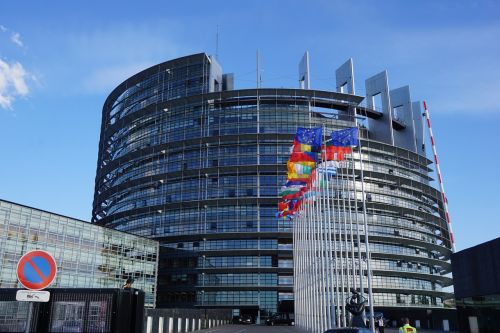The European Union Parliament election and the setting up of its institutions for the coming term are now behind us, but not the partisan politics, the ego, or the bickering.
One would think enough lessons were learned from an election that took place on the backdrop of growing uncertainty and concern about the EU’s survivability in the presence of growing internal cracks, as well as about its ability to hold its own in the face of major domestic and global challenges. One would think, but unfortunately that does not seem to be the case.
It is time for the EU leadership to shape up. Its comprising representatives must cooperate in order to effectively deal with the looming risks. But not only that. First and foremost, they must work together in order to succeed in their most important task—improving life for all people across the EU’s member countries, in order to bolster the confidence of those who are still hanging on to its dream and to regain the support of those who no longer do.
It is time the EU leadership looked at itself through the eyes of the people. There is a reason there were concerns, pre-election, that Eurosceptics, populists and the extremes might gain a critical mass that would change the EU’s direction and threaten its very existence. If the people are already looking for alternatives because they feel they have no other choice, then the EU is not doing enough for them. If they feel the EU leadership is dealing only with the world-encompassing challenges while their own increasing day-to-day hardships remain unheeded, they will turn their backs on it.
The EU is not its halls and offices, its meetings and summits. It is its people.
Its leadership needs to understand the impact of its actions on them and to adjust its strategies accordingly. It certainly must consider what it is that it is not doing enough of. It is essential that it be aware of the people’s concerns, both those shared across the EU and the unique challenges faced by the residents of each member country.
The EU leadership comprises representatives from all across the EU, and these representatives are therefore supposed to know what it is the people need, what they feel would allow them to live their lives in dignity. If they do not, then they are not the ones who should be deciding for them.
Within whatever grand plans the EU leadership has for this term, the people must be a priority. Moving only on spanning issues such as climate change will not work if it fails to concurrently implement trickle-down agendas that will offer real solutions for the people. Disregarding the people’s needs and setting down draconian rules and limitations without considering the impact of these on them will only make their lives harder and alienate them.
It is time the EU leadership put some real effort into it, think outside the box and find viable, long-term ways to deal with the major challenges without pulling the rug from under those who, as it is, find themselves having to contend with both the challenges of a troubled world and the consequences of solutions brought by decisionmakers who are often too detached from the reality of their lives.
Not only that. Whatever steps it intends to take, the EU leadership needs to share with the people the what and why of what it is doing, and how that will benefit them. It needs to explain. To be transparent. To make sure the people know that their leadership sees them, that it is working for them. That it understands.
The EU will make far greater progress implementing its plans while at the same time increasing its unity instead of further weakening it if its leadership opts to work with the people, and if the people trust that a loss in one realm of their life will bring gain in another. If they are confident that the EU leadership is looking out for their best interests, they will be more supportive of its actions and in the decisions it makes.
Nor should the EU leadership claim that the people are not privy to everything that is happening across the EU and beyond it, that there are complexities they do not understand that warrant measures they should not contest. That excuse does not hold. Those who are elected for the EU’s institutions are there to find real and viable solutions for problems on every scale, and if any one of them is unable to do so, they should not be there.
The people know that world-encompassing issues need to be dealt with, that EU-wide problems on the economic and security levels need to be urgently solved. They just expect that they too will be a priority in their leadership’s considerations and resolutions, and that action will follow talk also where they are concerned.
The EU leadership must not let them think that it is either unaware of or is uninterested in the daily challenges they face and in the worries that plague them. It needs to remember that great plans and encompassing visions can move the world, but only if the people share in their implementation, and certainly in their benefits.
The EU leadership would do well to look out for the people and involve them, and their trust in it will grow, allowing the EU to still be here, stronger than ever, five years from now, with a new leadership that will then have the mandate to continue to improve life in the EU and beyond.
The incoming leadership has an opportunity to make a difference, and it needs to remember that the people have the choice to remove it from power if it does not take it.
The people have given it one more chance. It must not mess it up. The recent election has given the EU a reprieve. The next election, less than five years from now, could lead to its downfall.
By A. Claire Everward


